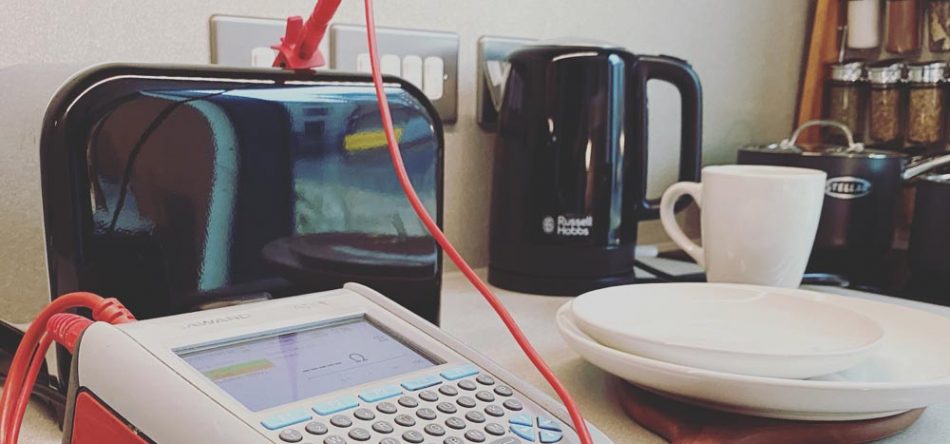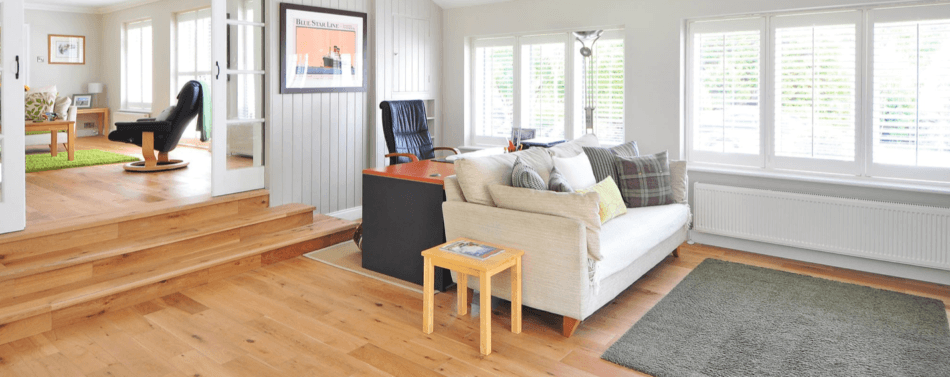New legal requirements for landlords of rental properties
From July 1st this year all private tenancies in England will need to ensure that electrical installations are inspected and tested by a qualified person before the tenancy begins.
Under the new rules, the landlord will have to ensure that the installation is inspected and tested at least every five years. For existing tenancies, an electrical safety test will need to be carried out by 1 April 2021, with regular tests following this.
All properties across the private rented sector, including HMOs, are subject to the new regulations. The regulations will replace the existing requirements for HMOs regarding electrical installation testing and inspection.
Once the electrical installation has been tested, the landlord must ensure they receive a written report from the person conducting the inspection, which includes the results and the required date for the next inspection then supply a copy of this report to each existing tenant living in the property within 28 days of the inspection.
This for now is a directive for the wiring not the appliances but we can still arrange this for you.
If you want to arrange to get the wiring in your properties tested get in touch. It may be better to do it sooner rather than later when you have no choice.
Check out this Landlords inspection and testing guide in the National Residential Landlords Association website.

Landlords electrical safety certificate
It is recommended that Landlords obtain an Landlords electrical safety certificate to show that their electrical installation is safe, this includes the main wiring and any portable appliances provided, in order to comply with ‘portable appliance testing law’.
Landlords electrical test certificates would cover the main electrical wiring installation, and is more commonly referred to as the periodic inspection or EICR, and portable appliances. Following the inspection and testing of these two installations test certificates will be issued to the landlord.
Electrical Safety Certificate | Landlords Electrical Safety Certificate
Are you aware, that if a landlord fails to provide an electrical safety certificate he may be prosecuted?
The Electrical Installation Condition Report (EICR) is also known as an electrical safety certificate. The EICR is an assessment of the condition of the fixed wiring installation in a property; basically the wires in the walls. A qualified electrician will test each circuit from the fuse board to the sockets connecting to appliances, but not the appliances themselves.
This is because electrical cables can deteriorate over time and will need replacing; the test tells us when that is the case. Very old or very deteriorated cables can lead to hazardous situations that could lead to a fire starting, so it is essential that we check the cables/circuits periodically.
The electrician we use to do the EICR is fully accredited with the NICEIC.
PAT testing rental properties
Electrical appliances need testing too
It is important not to forget about the electrical appliances that come with the property – they should be tested too. A portable appliance test (aka PAT test) should be carried out as often as the risk requires it. Some say every 48 months is sufficient but that is a very long time in our experience, and many faults can develop in that time.
PAT testing rental properties
If you as the landlord are also doing regular visual inspections and repairs you may get away a long period of time between pat testing rental properties, but we generally advise against such a long period is accidents can easily happen in a home. For peace of mind we recommend annual testing, or at least every time a tenant changes; you may get away with every couple of years but any more than that is usually asking for trouble.
We also suggest you register your appliances and check the latest product recalls first, just incase you have a faulty washing machine that has been recalled for example.
The PAT test for landlords should include any portable electrical appliances that come with the property including integrated appliances, such as fridges, freezers, washing machines, dishwashers, televisions, lamps, etc.
Regular PAT tests are important because over time appliances can deteriorate and pose a risk of electric shock or overheating.
The EICR should be completed at the renewal of new tenancies or every 5 years, dependent on the guidance of the electrician
The PAT test should be completed at the renewal of new tenancies or every 4 years (with intermittent visual checks), dependent on the guidance of the engineer
If you need EICR or PAT testing in a rental property contact us today.
Landlords electrical test certificate
Legal obligations for Landlords of rental properties is in place in Scotland but has not yet filtered down in to England, however, if you follow the news then you’ll know it is only a matter of time before it becomes compulsory for landlords to have electrical inspections on a regular basis. In the mean time here is an overview of the law concerning portable appliance testing for landlords.
PAT testing for Landlords is important as it provides a level of protection in the event of an accident in the property.
“Portable Appliance Testing Law” for Landlords includes:
Anyone who lets residential property, including houses, flats, holiday homes, caravan parks, canal boats, etc. is conducting a business activity and so is required by law to ensure that any electrical equipment provided as part of the letting agreement is safe.
The Electrical Equipment (Safety) Regulations 1994 requires that all mains electrical equipment e.g. cookers, washing machines, kettles, microwaves, Televisions, etc. supplied with the accommodation must be safe, and recorded as such. Landlords therefore need to regularly maintain the electrical appliances they supply to ensure they are safe, and thus need to get the appliances inspected and tested to prove that the maintenance is being done correctly and that the appliances are in fact safe.
The Plugs and Sockets etc. (Safety) Regulations 1994 (acting as secondary legislation under the Consumer Protection Act) relate to the supply of plugs, sockets, adaptors and fuses intended for domestic use, with a working voltage of not less than 200 volts, and also the supply of any appliance that had a plug fitted.
Because the regulations relate to the “supply”, then the lettings agent or landlord become liable as the supplier. The regulations require the supplier to ensure that the goods are safe, so their is no risk to the tenant, pets, or the property itself.
Part I of the Regulations require:
- That where any plug, socket or adapter is supplied which is intended for domestic use, that it complies with the appropriate current standard. This means that they must conform to the relevant British Standards (i.e. BS1363) or approved alternatives. British Standard BS1363 covers 13 Amp fused plugs, switched and un-switched sockets. The standard now requires that the live and neutral pins on plugs are part insulated so as to prevent shocks when removing plugs from sockets.
- That plugs be fitted with a fuse that conforms to BS1362, i.e. the standard for general purpose fuses for domestic or similar purposes. The fuses also need to be rated correctly either in accordance with the appliance manufacturers instructions or to BS1362.
Part II of the Regulations require:
- That where any appliance is supplied which is designed to connect to a socket, directly or indirectly, it has a plug which conforms to BS1363 (as above). The appliances covered by the Regulations operate at not less than 200 volts and not more than 13 Amp and also have a flexible cable or cord for connecting to a socket. Most appliances are now supplied with cables with moulded plugs.
- Appliances with a non-UK plug, to safety standard *IEC 884-1, and which have the approved type of conversion plug, are allowed and can be supplied. Conversion plugs enable non-UK plugs to be engaged with UK sockets.
Part III of the Regulations require:
- That a standard or conversion plug be legibly marked or labelled identifying it as approved.
- That any necessary information to operate the plug safely will be either marked on the plug or provided in a notice accompanying it.
The Electricity at Work Regulations 1989 state that all electrical appliances supplied with let accommodation must be safe. This applies to both new and second hand appliances and covers all electrical appliances supplied for the intended use of the tenant. The only method to ensure that the appliances are safe is to have them inspected by a qualified and experienced portable appliance testing technician.
The Electrical Equipment (Safety) Regulations 1989 impose the obligation on the supplier of such goods to ensure that they are ‘safe’ as defined by Section 19 of the Act – so that there is no risk of injury or death to humans or pets, or risk of damage to property.
As a Landlord you are the supplier of goods, and so you are accountable to these regulations.
Visit out main Landlords PAT Testing page



